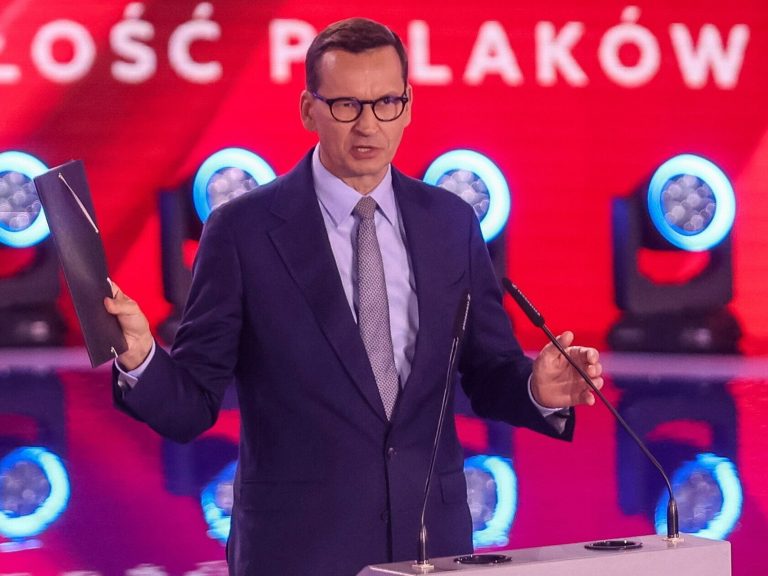Digitization in Poland. We are below the EU average

Poland's performance in the area of business digitalization is below the EU average, which means that there is still a lot of catching up to achieve in order to achieve the goals resulting from the EU's “digital decade” policy.
– There are differences in the digitalization of Polish business, which result primarily from the size of enterprises. These larger and large companies are doing well, they use the cloud or artificial intelligence. However, small enterprises, especially micro ones, often do not use even the most basic tools, they have everything saved on some pendrives, they do not use the cloud, which in turn makes it difficult for them to implement more advanced solutions. There is a big gap here and certainly a lot of things to do, says Ignacy Niemczycki, Undersecretary of State at the Ministry of Development and Technology. – It looks similar in many EU member states, digitalization in Poland is not radically different from the countries in our region, and everywhere we see the difference between large and small entrepreneurs, so this is a challenge at the level of the entire EU.
At the beginning of 2023, the “Road to the Digital Decade” program entered into force, setting the directions for the development of the European Union's digital transformation. One of them concerns the digital transformation of EU enterprises – the EU wants 75 percent by 2030. of them used the cloud, AI or big data, and over 90 percent EU SMEs have achieved at least a basic level of use of digital technologies.
Published last September The European Commission's first report on the state of the “digital decade” shows that Poland has a lot of catching up to do to achieve these goals. Our country's current results in the area of business digitization are still below the EU average – 19% of people use cloud computing services. domestic enterprises (the EU average is 34%), and from electronic information exchange – 32%. (EU average is 38%). Moreover, only 18 percent Polish enterprises actively use social media, and 3 percent incorporates AI technologies into its activities. Electronic invoices and big data are not yet widely used. Polish companies are also involved in e-commerce to a relatively small extent – 14% of them sell online. SMEs, and only 5% of them sell cross-border to other EU Member States.
– Business digitalization is the absolute basis for the development of modern economic sectors in Poland – emphasizes the Deputy Minister of Development and Technology. – The government can, of course, encourage companies to digitize by using specific financial mechanisms, and such solutions already exist, we use European funds for this purpose, we also have the Polish Agency for Enterprise Development. However, the key is not only money, but also education. That's why our ministry tries to work directly with entrepreneurs and platforms, which in turn work with smaller companies. In this way, we are able to communicate quite efficiently with the smallest enterprises and build knowledge on how to carry out this digitization process.
The deputy minister emphasizes that EU funds provide great support in the digitization of Polish business. In the National Reconstruction Plan – unlocked by Brussels at the end of February this year. – activities contributing to digital transformation constitute 21.3%. (over EUR 7.5 billion) of the total allocation, and it is expected that approximately EUR 6.8 billion of these funds will contribute to achieving the goals of the “digital decade”.
– We have European Funds for a Modern Economy and this is a key program from the perspective of developing the digital capabilities of entrepreneurs who have a wide range of available options. This is money for solutions from the very simplest to the very advanced ones. So – if there is a will on the part of the entrepreneur – these funds are there. What is a challenge, however, is to convince an entrepreneur – especially a small one – to take some steps and realize that it is worth investing time and money, because in the perspective of even two years, such digital, automated solutions may simply be profitable for him – says Ignacy Niemczycki .
In addition to business digitization, adopted at the beginning of last year the “digital decade” program also sets goals regarding the digital competences of citizens of EU countries, the digitization of public administration and the development of digital infrastructure. One of them is, among others, doubling the EU's current share in global semiconductor production – referred to as the “gold of the 21st century” – to 20% by the end of this decade. The deputy minister estimates that this is an opportunity for Poland to attract investments from this segment.
– We have adopted the so-called Chips Act, we also have Intel's investment planned in Poland, which Deputy Prime Minister Krzysztof Gawkowski has already talked about, so there is space here to create conditions in Poland for semiconductor companies to invest in our country, we have a certain base to use. I definitely see great chances for Poland to participate in this process. Above all, we must ensure that Europe is competitive against the background of Asian countries and the United States. When we increase this European piece of the cake, I am convinced that Poland will also be able to use a significant part of it – says the Deputy Minister of Development and Technology.






